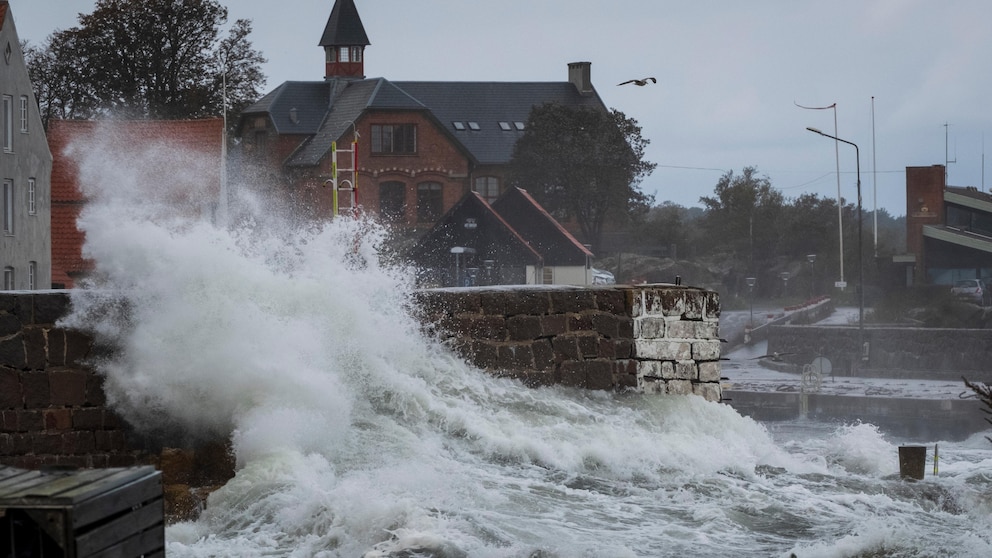
COPENHAGEN, Denmark — COPENHAGEN, Denmark (AP) — A storm battered Britain, northern Germany and southern Scandinavia early Saturday, for a third day, with powerful winds, heavy rain and storm surges that caused floods, power outages, evacuations and disrupted flights, railway service and ferry lines.
Since Thursday, at least four people have died in the storm, named Babet by the UK Meteorological Office. The latest victim was a 33-year-old woman who was killed when a tree fell on her car on the Baltic Sea island of Fehmarn on Friday afternoon, German news agency dpa reported. Three storm-related deaths were reported in England and Scotland on Thursday and Friday.
Gale-force winds whipped up storm surges on the southern shores of the Baltic Sea, breaking through flood defenses in coastal areas in Denmark and northern Germany. In Flensburg, a German city just south of the border with Denmark, water levels rose more than 2 meters to the highest level recorded in a century, dpa said. Power was cut to flooded parts of the city for safety reasons.
Ferry lines and railway service were temporarily suspended in affected areas in Germany, Denmark and southern Sweden. Copenhagen’s airport canceled 142 flights due to the storm on Friday but resumed operations on Saturday morning.
People were evacuated from homes and campgrounds in severely hit areas in Denmark and dozens of people were without power. The municipality of Haderslev in southern Denmark decided to evacuate the entire coastline.
“The situation on the coast is now so serious that it is too dangerous to stay there. All affected areas are evacuated and the emergency response is pulling out its crews,” the municipality said in a Facebook post late Friday. It wasn't immediately clear how many people were affected.
The Danish Meteorological Institute warned of strong winds and elevated water levels throughout the weekend.
In Scotland, as much as 4 inches (100 mm) of rain was forecast Saturday, and several towns remained under a red weather alert, the highest level, which means there is a danger to life.
Met Office meteorologist Jonathan Vautrey said parts of eastern and northern Scotland had already had a month and a half’s worth of rain during the storm, with more downpours coming that could “push those areas close towards two months of rain in the span of three days.”
In the worst-hit town of Brechin, residents of more than 300 homes were told to leave before the River South Esk breached its banks Friday, surging almost 4 meters (13 feet) above its usual level and sending water pouring into the streets.
The Scottish Environmental Protection Agency warned a second major river, the Don, could breach on Saturday. Scottish First Minister Humza Yousaf said, “unfortunately, it is clear we have not seen the last of this storm.” The storm brought disruption across the U.K., with several main roads and rail lines shut by flooding. Leeds-Bradford Airport in northern England remained closed Saturday.
Sourse: abcnews.go.com






